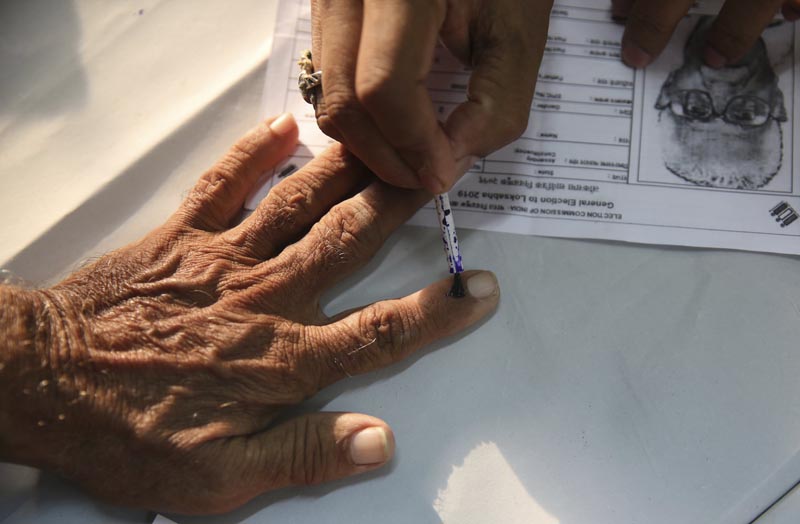Indians vote in 4th phase of mammoth national election
NEW DELHI: Indians were voting Monday in the fourth phase of a staggering national election, with Prime Minister Narendra Modi’s Hindu nationalist party facing a major test as it looks to govern for another five years.
Voting was being held in nine states. The remaining three phases will be completed by May 19, and vote counting begins May 23.
Monday’s polling is a big test for Modi’s Bharatiya Janata Party and its allies, who won 56 of the 72 seats being contested Monday in 2014 elections that swept the BJP to power.
But it suffered a setback in December when the opposition Congress party wrested power from the BJP in three key state elections — Rajasthan, Madhya Pradesh and Chhattisgarh. Rajasthan and Madhya Pradesh were voting on Monday.
In the first three phases, voter turnout was around 66.4%, the same as in 2014, when Modi’s party came into power with 282 seats. This may not be good news for the BJP, which launched a campaign two years ago seeking to increase voter turnout in the 2019 election.
“The BJP hasn’t been able to enthuse people and overcome the voters’ apathy,” said Nilanjan Mukhopadhyay, a political analyst who has written a biography of Modi.
Modi said in campaign speeches last week that his government was not facing an anti-incumbency bias “as people know that the BJP-led government is working honestly for the development of the country.” He also said all past governments in India had faced such biases in national and state elections.
With Modi as its frontman, the BJP won a clear majority in 2014 elections. Under the leadership of political dynasty scion Rahul Gandhi, the Congress party, which had ruled the country for more than half a century after 1947 independence, has struggled to coalesce India’s many opposition parties into a coherent force that could go head-to-head with the BJP.
The opposition says the BJP’s emphasis on Hindu nationalism has aggravated religious tensions and violence against Muslims and other minorities in constitutionally secular India. Hindus comprise 80 percent of India’s 1.3 billion people. There is a large Muslim minority, with smaller minorities of Sikhs, Christians and others.
Surveys show Modi’s BJP is projected to come out first again in the current election, though with a smaller mandate.






